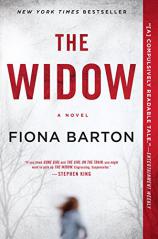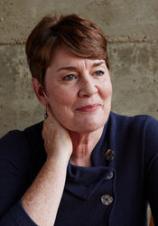Reading Group Guide
Discussion Questions
The Widow

A Conversation with Fiona Barton, Author of THE WIDOW
Question: How would you describe THE WIDOW?
Fiona Barton: Put simply, THE WIDOW is a psychological thriller about a man accused of a terrible crime --- the abduction of a child. But it isn’t that simple. The story is told by four people caught up in the drama. Primarily, the narrative belongs to Jean, the widow of the accused, as she remembers her life and interprets the events that threaten everything --- and everyone --- she believed in. Woven through are the stories of the desperate search for a two-year-old child, told by the police officer in charge, the mother of the victim, and the journalist covering the story.
Q: Where did the idea for THE WIDOW come from?
FB: As a journalist, I spent a lot of time in court. In the big cases, I would find myself watching the wives of those accused of notorious and terrible crimes and wondering what they really knew--- or allowed themselves to know. I wondered: How do you cope with the idea that your husband--- the man you chose to spend the rest of your life with--- may be a monster? THE WIDOW grew out of that fascination and has taken me on an unexpected journey.
Q: Which compelling character came to you first: the hard-nosed journalist, the obsessed detective, or the widow herself?
FB: Jean. She was always there. I could hear her voice from the start.
Q: There are a lot of secrets in Glen and Jean Taylor’s marriage, but also seemingly love and stability. How would you describe their relationship?
FB: It is, like all marriages, a complex combination of surface and interior needs and compromises. To others, Jean is the emotional heart of the relationship, clucking round her man, while Glen provides the physical stability and status. But, beneath, is a touchy, thin-skinned man who needs constant reassurance to soothe his ego and a woman longing for a different life.
Q: What sets their marriage apart from police officer Bob Sparkes’ marriage to Eileen?
FB: I suppose that in both marriages the spouses are being forced to look at each other again for the first time in years and reassess their partnership. For the Taylors, the pressure has come from outside the marriage. For the Sparkes, whose relationship was based on family, children, and Bob’s career, it is the phenomenon of empty nesting that tests them.
Q: What challenges did you face while writing THE WIDOW?
FB: The main challenge was finding the time to write. I was brilliant at making a million excuses not to sit at my desk and write --- my job, my family, the need to sort out cupboards --- but two things happened to get me on track. The first was the deadline --- every journalist needs one --- and the second was a job in Myanmar for six months. In exile from everyday life, I found my rhythm, getting up early to write before the day started.
Q: Describe the city of Southampton. Why set THE WIDOW there instead of larger metropolitan locations, such as London, Birmingham or Glasgow?
FB: Southampton is a large port (the Titanic set sail from here) and university town in the county of Hampshire on the south coast of England. I chose it because I wanted to set the book in places I know personally so I can walk the streets in my head rather than on Google Earth.
Q: Social media plays a big role in THE WIDOW. How do you think outlets such as Facebook, Twitter, Instagram, etc. have changed journalism or even police work?
FB: Social media has changed everything. I train journalists all over the world, and they use social media to find stories, tell stories and discuss stories with their audience. Some say that everyone is a journalist now --- I disagree. I would say that anyone can tell a story now --- and millions do, posting information and their opinions on topics --- but a journalist gathers information, researches, analyzes and crafts a story that allows the audience to form their own opinions. Well, that’s the theory…
Q: While the seemingly mousy Jean Taylor stands by her husband Glen, there are many layers to her personality. How would you describe her?
FB: Terrified, conflicted and desperate to hang on to the life she knows.
Q: What books inspire you as an author?
FB: There are so many books that have touched and influenced me --- I’ve been reading for more than 50 years! But most recently: Hilary Mantel’s WOLF HALL and BRING UP THE BODIES for the brilliance of her storytelling; WHEN WILL THERE BE GOOD NEWS? (Kate Atkinson) for the characters and power of a story told by many; and A PRAYER FOR OWEN MEANY (John Irving) for its sheer otherness.
Q: Would you ever consider revisiting Kate Waters or Bob Sparkes in a future book?
FB: I am! Kate Waters is in my next book and I am considering bringing both of them back in my third book.
The Widow
- Publication Date: January 17, 2017
- Genres: Fiction, Psychological Suspense, Psychological Thriller, Suspense, Thriller
- Paperback: 352 pages
- Publisher: Berkley
- ISBN-10: 1101990473
- ISBN-13: 9781101990476








